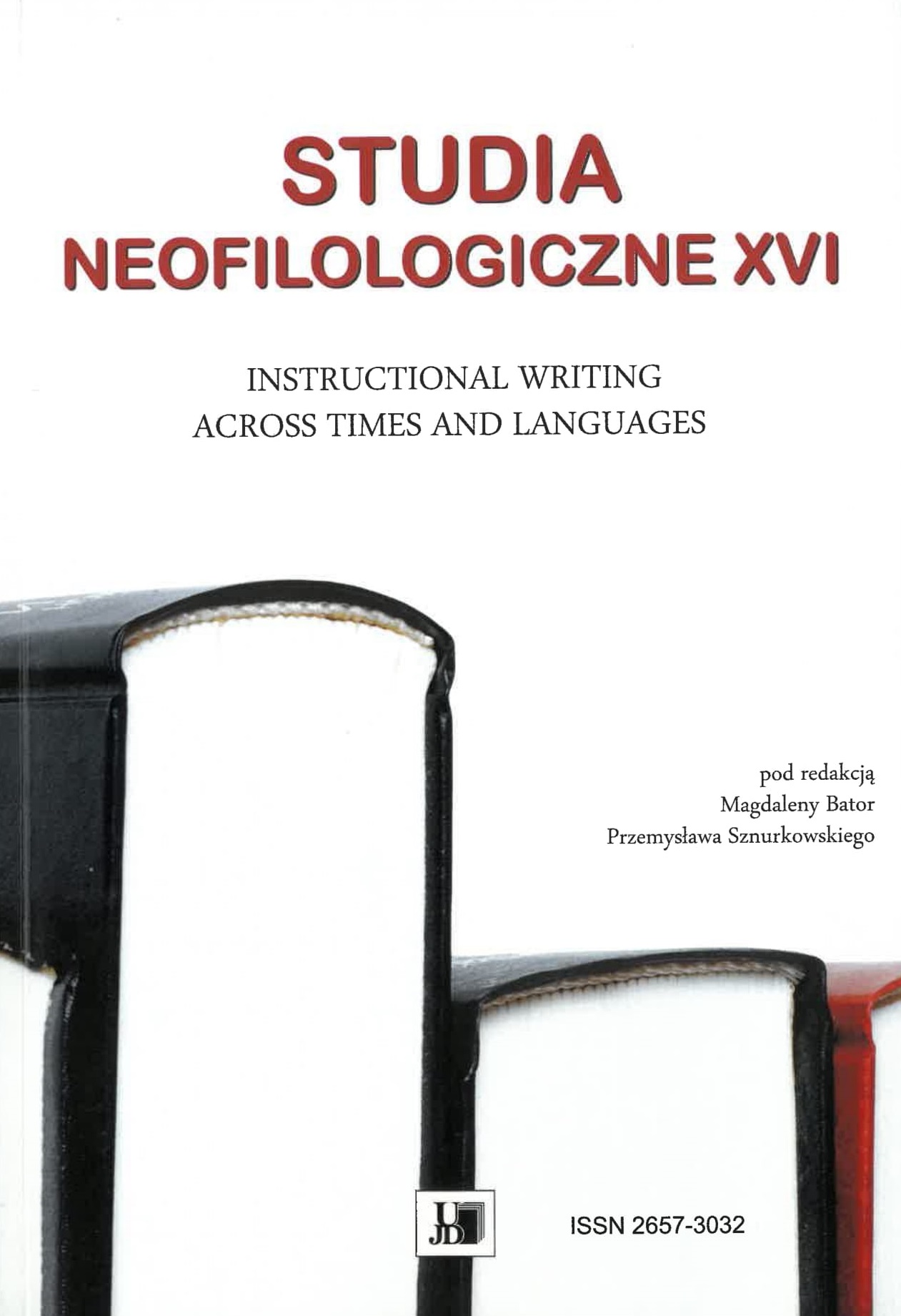‘SO THAT IT MAY REACH TO THE JUGULAR’. MODAL VERBS IN EARLY MODERN ENGLISH RECIPES
‘SO THAT IT MAY REACH TO THE JUGULAR’. MODAL VERBS IN EARLY MODERN ENGLISH RECIPES
Author(s): Francisco Alonso-Almeida, Francisco J. Álvarez-GilSubject(s): Theoretical Linguistics
Published by: Uniwersytet Jana Długosza w Częstochowie
Keywords: modality; modal verbs; early Modern English; recipe genre
Summary/Abstract: The focus of this article is the use and function of modal verbs in early Modern English recipes (1475–1699). Modal verbs may show an array of modality meanings, such as the expression of epistemic and dynamic probability, and deontic permission, for example. In principle, both the formulaic nature of the recipe genre and its use for indicating procedure seem to suggest the existence of a primary modality layer of authorial deontic positioning in the sense of necessity. Indeed, recipes tend to represent a list of obligatory steps to be followed in the preparation of the remedy. Our research based on computer enquiries of a compilation of early Modern English recipes reveals that modal verbs appear to indicate some other recurrent modal scopes, namely possibility and prediction, as well as an array of pragmatic functions, viz. reliability, reinforcement and mitigation of claims. Our notion of modality mainly follows from Palmer (1986 and 2001), Hoye (2008), and van der Auwera and Plungian (1998). Conclusions will report on the frequency of modal verbs and modal meanings as well as their functions in discourse. These will also include an account on the relationship between modal verbs and modal meanings and certain formulaic patterns in the recipes compiled.
Journal: Prace Naukowe Akademii im. Jana Długosza w Częstochowie. Studia Neofilologiczne
- Issue Year: XVI/2020
- Issue No: 16
- Page Range: 61-88
- Page Count: 28
- Language: English

